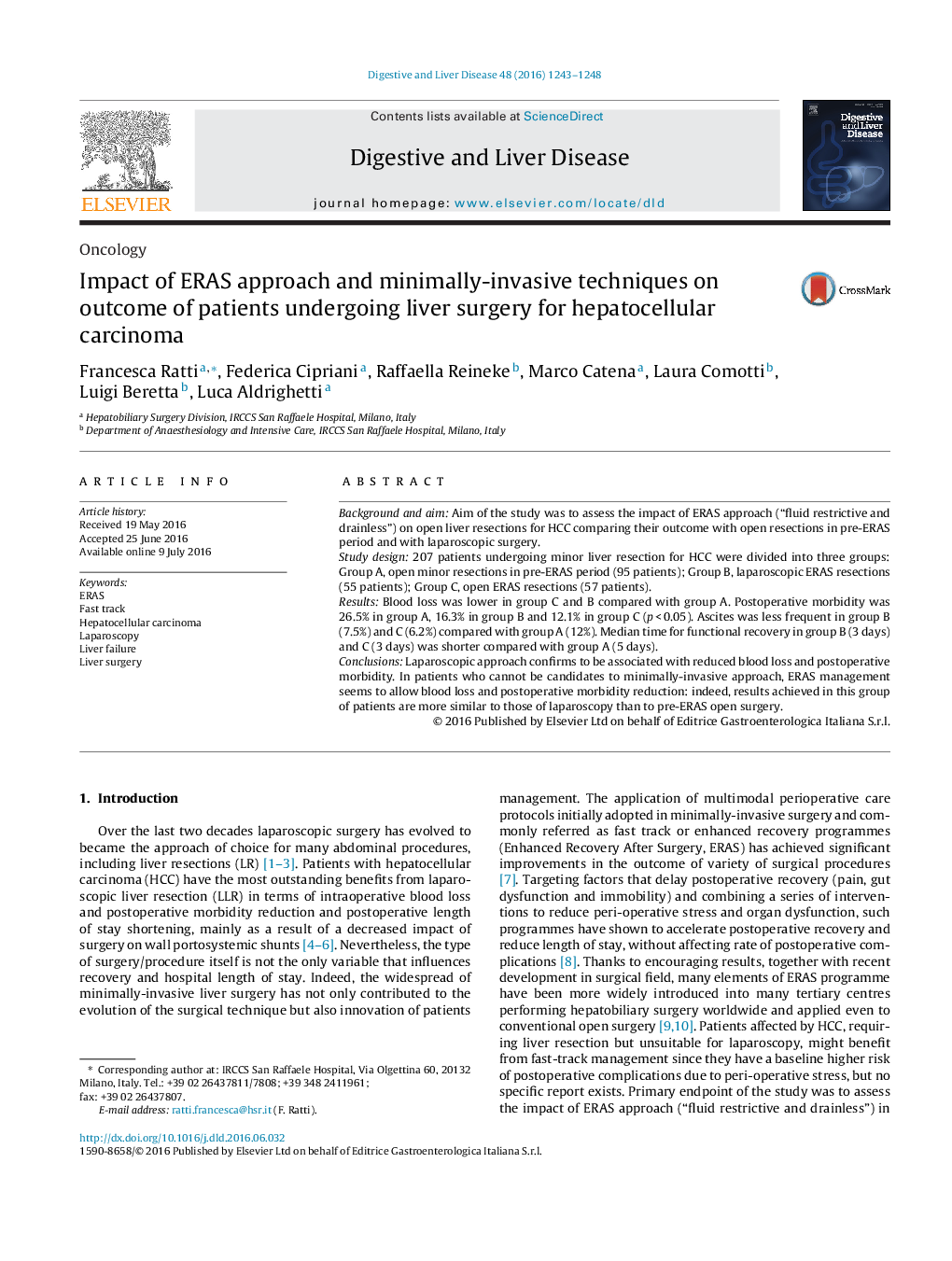| Article ID | Journal | Published Year | Pages | File Type |
|---|---|---|---|---|
| 5655918 | Digestive and Liver Disease | 2016 | 6 Pages |
Background and aimAim of the study was to assess the impact of ERAS approach (“fluid restrictive and drainless”) on open liver resections for HCC comparing their outcome with open resections in pre-ERAS period and with laparoscopic surgery.Study design207 patients undergoing minor liver resection for HCC were divided into three groups: Group A, open minor resections in pre-ERAS period (95 patients); Group B, laparoscopic ERAS resections (55 patients); Group C, open ERAS resections (57 patients).ResultsBlood loss was lower in group C and B compared with group A. Postoperative morbidity was 26.5% in group A, 16.3% in group B and 12.1% in group C (p < 0.05). Ascites was less frequent in group B (7.5%) and C (6.2%) compared with group A (12%). Median time for functional recovery in group B (3 days) and C (3 days) was shorter compared with group A (5 days).ConclusionsLaparoscopic approach confirms to be associated with reduced blood loss and postoperative morbidity. In patients who cannot be candidates to minimally-invasive approach, ERAS management seems to allow blood loss and postoperative morbidity reduction: indeed, results achieved in this group of patients are more similar to those of laparoscopy than to pre-ERAS open surgery.
